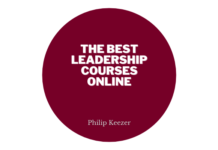In any workplace, conflicts are almost inevitable. They can arise from differing opinions, communication breakdowns, or even personality clashes. While employee conflicts may seem like a negative aspect of running a business, they can be harnessed and transformed into positive, learning experiences that lead to improved teamwork and overall company performance.
In this article, Phil Keezer delves into the strategies and techniques that can be employed to diffuse employee conflicts and leverage them as valuable opportunities for growth and development.
Promote Open Communication and Active Listening
Effective communication is the cornerstone of conflict resolution. Encourage employees to openly express their concerns and feelings without fear of judgment. Active listening, where individuals genuinely try to understand each other’s perspectives, is critical in this process. Leaders should create a safe and respectful environment where employees feel comfortable discussing their issues.
Address Conflicts Early and Proactively
Tackling conflicts promptly can prevent them from escalating and becoming detrimental to the work environment. As soon as you become aware of an issue, intervene and engage the involved parties in a constructive dialogue. Ignoring conflicts will only allow resentment to build up, making resolution more challenging in the long run.
Encourage Empathy and Perspective-Taking
Teach employees to empathize with their colleagues’ viewpoints and understand that conflicting opinions can arise from different experiences and perspectives. Perspective-taking helps individuals see the situation from various angles, leading to more informed and balanced resolutions.
Utilize Mediation Techniques
For more complex conflicts, consider bringing in a neutral third party to act as a mediator. Mediators are trained professionals who facilitate communication and guide the parties toward finding common ground. Their objective perspective can often lead to breakthroughs in resolving conflicts.
Implement Team-Building Activities
Organize team-building exercises and activities to improve relationships among employees. These activities can help build trust, foster collaboration, and strengthen the team’s bond. A cohesive team is better equipped to handle conflicts constructively, ultimately benefiting the entire organization.
Focus on Constructive Feedback
Feedback is a powerful tool in conflict resolution. Encourage employees to provide constructive feedback to their colleagues, emphasizing the positive aspects of their contributions while suggesting areas for improvement. Constructive feedback promotes growth and prevents conflicts from arising due to misunderstandings or unaddressed concerns.
Embrace a Growth Mindset
Promote a growth mindset throughout the organization, where employees view conflicts as opportunities for learning and personal development. When individuals adopt a growth mindset, they are more likely to embrace challenges and find innovative solutions to resolve conflicts.
Set Clear Boundaries and Expectations
Clearly define workplace expectations and set boundaries to minimize potential areas of conflict. When employees have a clear understanding of their roles and responsibilities, they are less likely to step on each other’s toes or feel frustrated due to unclear objectives.
Provide Conflict Resolution Training
Invest in conflict resolution training for employees and managers alike. Equip them with the necessary skills and tools to handle conflicts effectively, fostering a harmonious work environment where disputes are seen as opportunities for growth.
Handling employee conflicts is an essential aspect of successful business management. By promoting open communication, encouraging empathy, and employing proactive conflict resolution strategies, conflicts can be diffused and transformed into positive learning experiences. Embracing a growth mindset and focusing on constructive feedback empowers employees to view conflicts as stepping stones toward personal and professional development. In the end, a workplace that values conflict resolution fosters a positive culture, improves teamwork, and drives overall business success.
I hope you found this article interesting. If you did, stay in touch on Twitter and Facebook and follow me on Medium.














